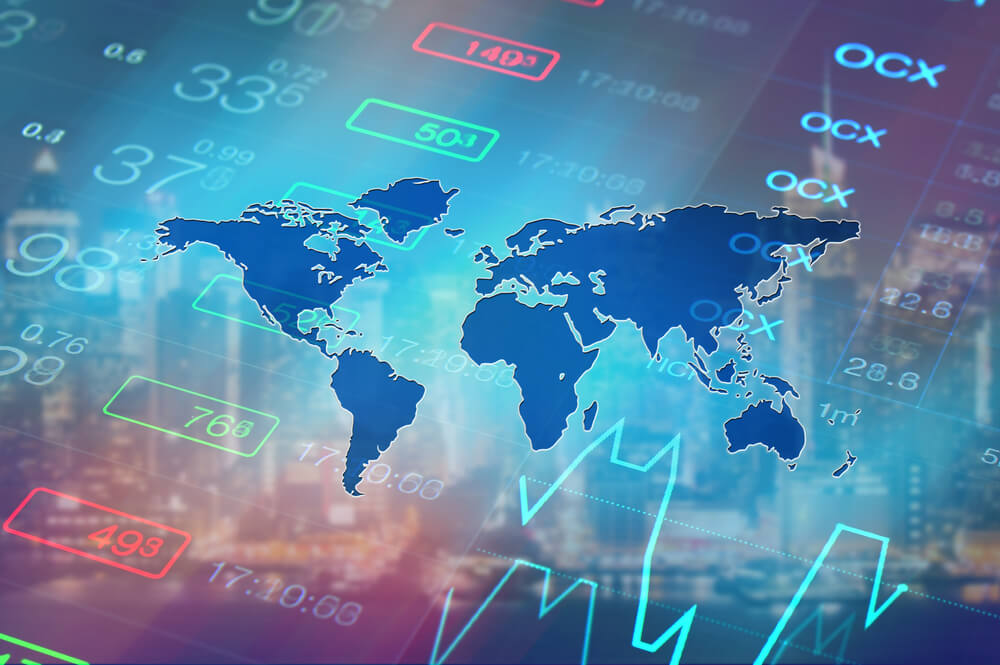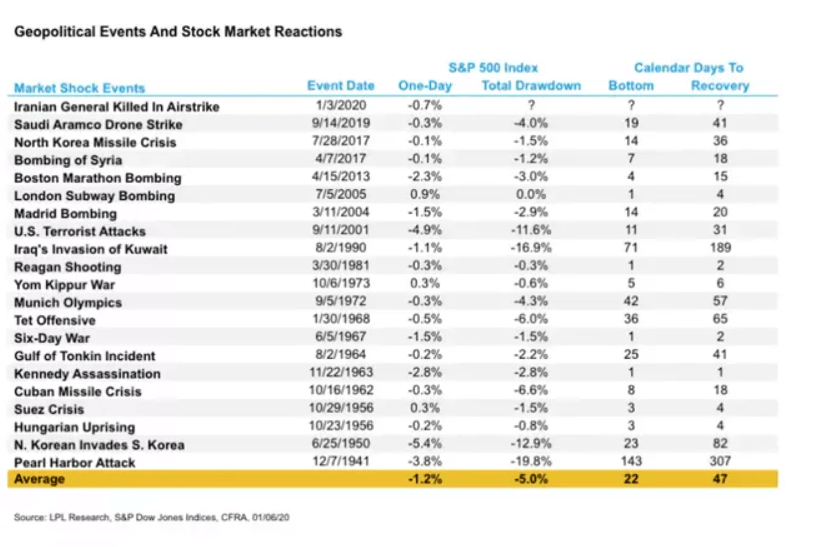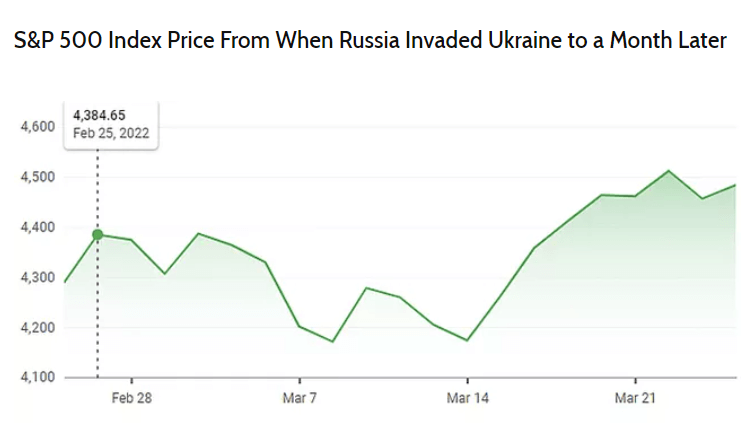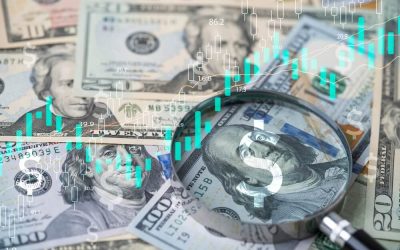
While war and defense spending can make up a significant portion of US GDP (more than $8 trillion since 9/11/2001 till now, according to the Brown Institute data), wars are not supposed to have a significant lasting effect on stock markets or economic growth.
For example, stocks have mostly ignored recent conflicts related to the Middle East and Iran.
However, the war between Russia, Ukraine and NATO allies could have more dire consequences for commodity and stock markets. Read on to find out why this situation deserves special attention.
Article content
Markets and wars. Historical data

From the start of World War II in 1939 until it ended in late 1945, the Dow Jones Industrial Average was up more than 7% per year. During two of the worst wars in modern history, the US stock market rose a combined 115%.
The relationship between geopolitical crises and market performance is not as simple as it seems.
Below is an entertaining table showing geopolitical events with dates and the subsequent reaction of the S&P 500 index.
Table 1. Source: LPL Financial.
Markets reacted strongly to the events of February 24, 2022 (not included in the table). The S&P 500 index fell more than 7% in the first weeks of the Russia-Ukraine war, as the US and European countries almost immediately imposed tough economic sanctions against Russia.
Investors’ anxiety began to spread as it became clear that the energy market was on the verge of global supply shortage, and commodity prices would only rise from that point forward. But a month later, stocks bounced back, and the S&P soared higher than before the February events. Despite all this, oil traded above $100/barrel.
S&P 500 index since the beginning of the Russia-Ukraine crisis:
Graph 1. S&P 500 Index. February 24 – March 24, 2022. Source: Investopedia.
When markets get hit
Economists believe that periods of tension, similar to those we observe today, turn out to be the most traumatic for the stock market.
In 2015, researchers from the Swiss Financial Institute studied US military conflicts after World War II and got impressive results. In cases of the pronounced pre-war phase presence within the war case, the stock market tended to behave according to the following pattern. The market fell at the time of the escalation and resumed growth in the final phase.
But in cases where the war began suddenly or almost suddenly, the stock market did not react in a pattern and could move unpredictably.
The extended geopolitical conflict with Russia carries high risks for the global economy. For example, the risk of long-term instability in commodity pricing since Russia is the core producer of crude oil and natural gas. Europe is especially dependent on Russian energy and has no adequate substitutes.
Black and Baltic Seas shipping troubles could cause food inflation, as grain and other staples are set apart from the West, which is heavily dependent on the food supply of foreign markets.
Which stocks do best during wartime?
Typically, defense stocks rise in a wartime environment. Energy stocks also often rise during geopolitical tension, as armed conflicts usually lead to supply disruptions.
How did stocks behave at the beginning of the world wars?
- World War I: Stocks fell about 30% at the start of the war. The markets stood closed for six months. When they reopened, the Dow Jones Industrial Average rose over 88% in 1915.
- World War II: The stock market rose 10% after Hitler entered Poland in 1939. Shares fell 2.9% after Japan attacked Pearl Harbor but retraced those losses in less than a month. From 1939 until the end of the war at the end of 1945, the Dow Jones Industrial Average rose 50%.

What should investors do?
Over the past few years, markets have adapted psychologically not to overreact to geopolitical turmoils for two reasons:
- Investors believed that the initial shock would not intensify.
- Investors know that the central banks have learned to dampen financial volatility through monetary measures and rate manipulation.
Mohamed A. El-Erian, the chief economic adviser to Allianz, recommends that investors buying market dips during war conflicts stick to a trading plan focused on high-quality, low-risk trades.
At the same time, the expert does not advise blindly switching from US markets to other, less liquid markets that may seem less volatile and less risky.
El-Erian also recommends paying attention to segments that have experienced positive spillovers from extraordinary central bank stimulus.
Making money in volatile markets
It is not worth buying low-liquid assets during episodes of geopolitical tension, especially those with a long duration. Nobody knows what will happen tomorrow.
Most likely, difficult times are ahead. Problems won’t disappear in a month, six months or a year. Anything can happen. There could be a recession, a depression period with high inflation or something else. In these circumstances, it is important not to panic and manage risks.
Volatility can offer a great earning potential in global financial markets. The present time is especially attractive because of the clear trends, which allows you to make profitable trades.
Whenever you live, you can access global markets through an international online broker. AMarkets allows traders to work comfortably from any location.








